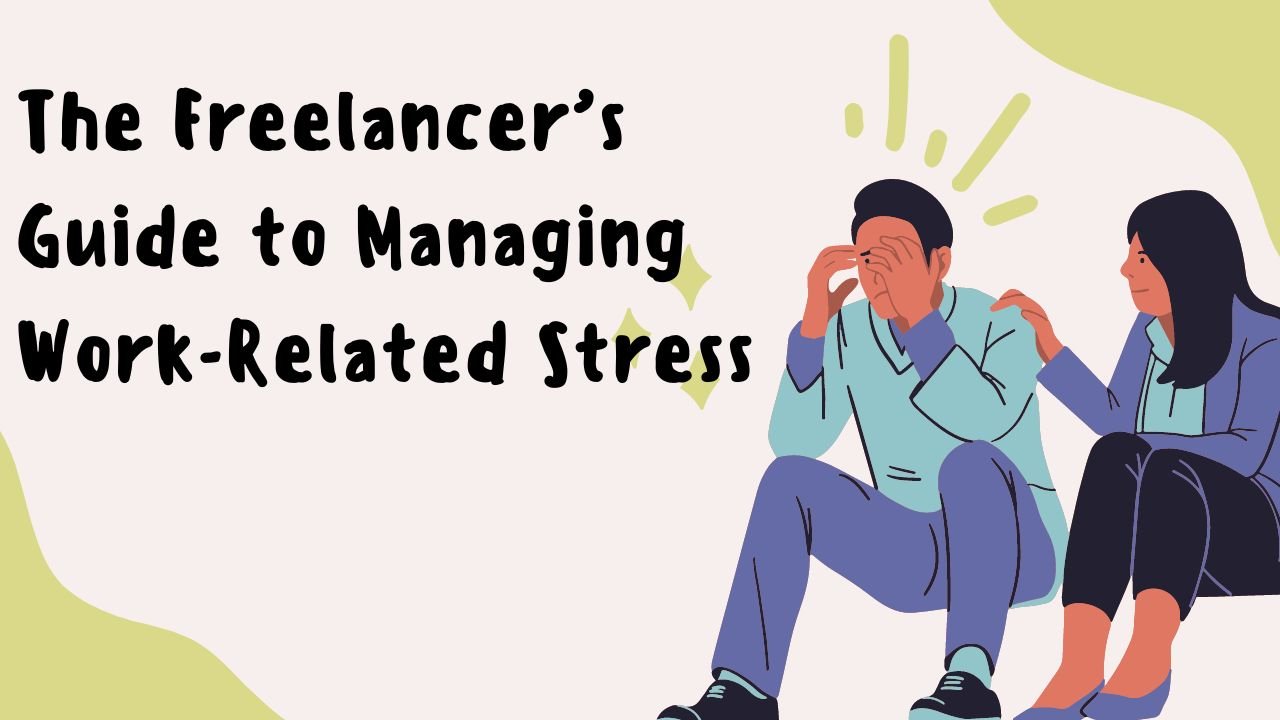The Freelancer’s Guide to Managing Work-Related Stress

Freelancing can be a rewarding way to work on your own terms, choose your own projects and clients, and showcase your skills and talents. Freelancing can also be a challenging way to work, as you face uncertainty, responsibility, isolation and competition. These factors can cause work-related stress, which can affect your health, well-being and performance.
Stress is a natural response to perceived threats or demands. It can help you focus, adapt and overcome challenges. However, too much stress or chronic stress can have negative consequences, such as anxiety, depression, burnout, insomnia, headaches, fatigue, etc. Therefore, it is important to manage your stress levels and cope with stress effectively.
In this blog post, we will share some tips and strategies to help you manage work-related stress as a freelancer.
Tips for Managing Work-Related Stress as a Freelancer
Here are some tips to help you manage work-related stress as a freelancer:
- Recognize the signs of stress: The first step to managing stress is to recognize when you are stressed and what triggers your stress. Some common signs of stress are irritability, mood swings, difficulty concentrating, procrastination, loss of motivation, etc. Some common triggers of stress are deadlines, workload, client expectations, feedback, etc. Pay attention to your body and mind and notice how you react to stressful situations.
- Practice relaxation techniques: Relaxation techniques can help you calm your mind and body and reduce the effects of stress. Some relaxation techniques are deep breathing, meditation, yoga, progressive muscle relaxation, etc. You can practice these techniques regularly or whenever you feel stressed. You can also use apps or videos to guide you through the process.
- Take care of yourself: Taking care of yourself can help you cope with stress better and improve your overall health and well-being. Some ways to take care of yourself are getting enough sleep, eating healthy food, drinking enough water, exercising regularly, avoiding alcohol and caffeine, etc. You can also treat yourself to something that makes you happy or relaxed, such as a massage, a hobby, a movie, etc.
- Set boundaries and limits: Setting boundaries and limits can help you avoid taking on too much work or work that does not suit you. You can set boundaries and limits by saying no to unreasonable requests or demands, negotiating your rates and terms with clients, delegating or outsourcing tasks that are not your core competency, etc. You can also set boundaries and limits by creating a dedicated workspace and schedule for your work and sticking to it.
- Seek support and connection: Seeking support and connection can help you reduce stress and feel less isolated. You can seek support and connection by talking to someone you trust about your feelings and challenges, such as a friend, a family member or a therapist. You can also seek support and connection by joining online or offline communities of freelancers who share similar experiences and goals. You can exchange tips, advice, feedback or referrals with other freelancers.
- Learn and grow: Learning and growing can help you overcome stress by enhancing your skills and confidence. You can learn and grow by taking online courses, reading books or blogs, listening to podcasts or attending webinars or workshops related to your field or interest. You can also learn and grow by seeking feedback from your clients or peers and using it to improve your work.
Conclusion
Freelancing can be a stressful way of working but also a rewarding one. By following the tips above, you can manage work-related stress as a freelancer and enjoy the benefits and rewards of this work.
Freelance Marketing Strategies: How to Promote Your Services
